“Railways in Greece: poor service, lack of competition”. This was the title of a report published three years ago by the Italian think tank OBC Transeuropa in collaboration with the European Data Journalism Network (EDJNet), which described the situation on Greek railways in the most negative terms, indicating that passenger train services in Greece are heavily subsidized. using loopholes and delays permitted by law EU.
OBC Transeuropa collected and analyzed data on timetables, stations and passenger complaints, and then interviewed key figures from the company.
Monopoly
The report notes that the only The passenger train operator in Greece is TRAINOSE. Former subsidiary of the Hellenic Railways Organization (ose), in 2008 it became an independent state-owned company, until its privatization in September 2017, when it was acquired by the Italian national railway company Ferrovie dello Stato for 45 million euros.
Thinktank asked TRAINOSE for passenger traffic data, but they replied that there were no statistics or figures. However, Greece is one of the few EU member states where passenger numbers have been falling over the past decade, along with Bulgaria, Croatia and Slovenia, according to Eurostat.
The passenger train market in Greece is a monopoly, as TrainOSE has the exclusive right to operate passenger rail transport.
Memorandum of Understanding with the Greek State
In November 2019, TrainOSE signed a Memorandum of Understanding with the Greek government. According to it, the company received the right to provide public railway passenger transport services for a period of 10+5 years. It provides that the Greek state will continue to provide companies €50m plus VAT (total €750m) per annum to meet public service obligations.
In return, TrainOSE must operate certain routes without commercial interest (so-called “non-commercial lines”). However, Panagiotis Theoharis, former CEO of the Hellenic Railway Organization (2018-2019), told the think tank that 95% of Greek railway services are subsidized. Interestingly, the subsidies also go to routes that TRAINOSE operates with buses rather than trains.
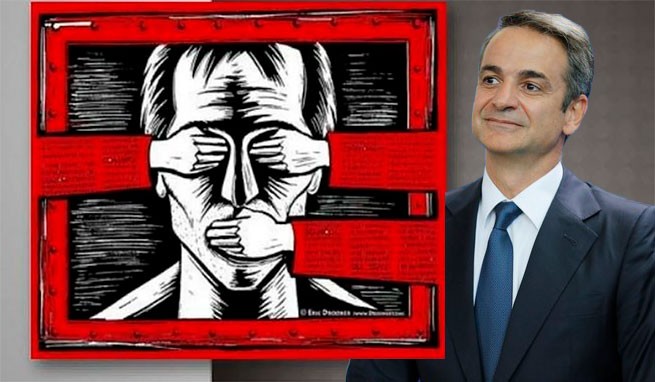
According to the level of freedom of speech Greece from 2022 to 108th place in the world. Could this be the problem with current events?
Memorandum of understanding can’t be found in the transparency portalwhere all public institutions in Greece should upload their activities(?!).
“It is easy to criticize the government for entering into a 15-year agreement with TrainOSE without an open call for expressions of interest and despite TrainOSE not delivering on its pledge of €500 million investment in Greece by 2020. TrainOSE claims that the previous government published an announcement of interest in October 2018, but no one expressed interest*“the report says.
After that, OBC Transeuropa turned to the European Commission with a request to comment on the government’s decision to sign the memorandum.
“Within the scope of the application of Regulation 1370/2007 and until December 2023, there is indeed a possibility for the authorities to directly award a public rail service contract to an air carrier. In such cases, the maximum contract duration is 10 years, but for contracts up to December 2019, it can be extended for another 5 years, provided that the operator makes a significant investment in assets such as rolling stock“, – said the representative of the European Commission.
“State assistance is provided without any control”
OBC Transeuropa contacted the Hellenic Railways Regulatory Authority (RAS). A spokesman for the Deputy State Minister in charge of Transportation said that the relevant government departments are monitoring the implementation of the contract. What’s more, they said, the ministry has asked the Hellenic Railways Organization – the state-owned company that owns, maintains and manages all railway infrastructure in Greece – to set up an electronic system to monitor public service contracts for proper tracking.
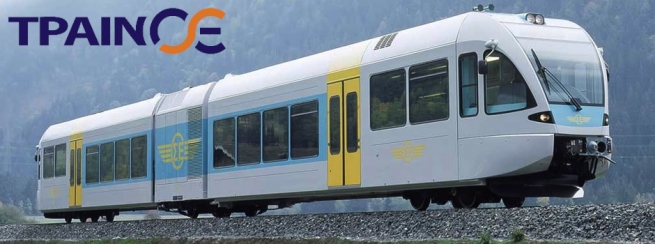
European paradox
RAS President Cipariku, commenting on the decision of the ministry to conclude a contract directly with the company, noted that “this action is legal. However, we also checked its legality. There is currently no other interested party performing railway passenger transport services. However, this decision excludes a company that may want to become a shareholder in the future. There is a European paradox here. On the one hand, EU law encourages healthy competition, on the other hand, EU law allows direct contracts.”
It can be easily argued that the government’s decision could affect fair competition in the passenger rail market in Greece. According to former TrainOSE CEO Thanasis Ziliascopoulos, “if the market were open, the future for Greek passenger lines would be bright.”
Austrian interest
Indeed, in January 2019, Rail Cargo Austria (RCA), a freight company controlled by the ÖBB Group, sent a letter to the Hellenic Competition Commission against the acquisition by TrainOSE of the Hellenic Railway Rolling Stock Company SA (EESSTY SA). In the same letter, the Austrian company expressed interest in investing in rail passenger transport in Greece as soon as the Greek government announces a tender.
OBC Transeuropa contacted Rail Cargo Austria. “Currently, RCA has to turn to its competitor for train maintenance, and EESSTY charges 200% more from RCA than from TRAINOSE. There is a monopoly on the market, which is why we filed a complaint with RAC. This issue must be resolved, otherwise can we invest in the maintenance of passenger trains?” said Zak Kiseoglu, Sales Director of Rail Cargo Logistics-Goldair SA in Greece.
“The new MoU gives TRAINOSE a monopoly on public passenger rail transport for 15 years, depriving other companies of the right to invest in this market. public service commitments remain at €50 million“, he added.
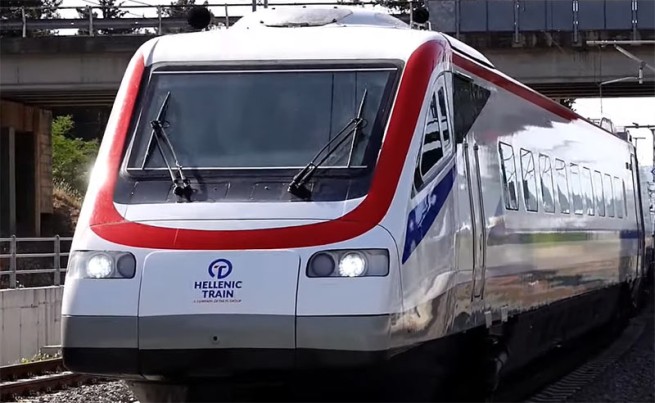
Payment for routes that are not served
OBC Transeuropa has loaded TRAINOSE’s offered trip data into the General Transport Service Specification (GTFS), a common format for public transport routes and related geographic information. The data obtained shows that there are currently 60 routes in Greece served by train and 8 by bus. After the start of the Greek crisis, TrainOSE was forced to close a number of routes to avoid financial ruin – especially in the Peloponnese, West Macedonia and East Macedonia-Thrace.
They also found all TrainOSE network stations on GitHub. Of the 216 railway stations in Greece, 156 are active and 60 are inactive.
OBC Transeuropa interviewed Panagiotis Paraskevopoulos, President of the National Federation of Hellenic Railways, about the complaint filed by the federation a few months earlier against TrainOSE and the Greek State for non-compliance with the contract they signed. According to Mr. Paraskevopoulos, the Greek state subsidizes TrainOSE for routes that are not actually operated. For example, according to him, the state allocated 17 million euros to TrainOSE for the Thessaloniki-Alexandroupolis route, but these funds were allocated even when the Drama-Alexandroupolis section of the route was not serviced. “There is preferential treatment for TrainOSE”he emphasized.
According to former TrainOSE CEO Thanasis Ziliascopoulos, public service contracts carry hefty fines if rail operators don’t honor them.
In fact, the question is whether the breach of contractual obligations has specific consequences in terms of EU law. “If the contract for the provision of services to the public does not meet the conditions, the Commission shall not impose a penalty on the Member State concerned, but may oblige it to recover compensation from the railway operator”, – explained in the European Commission.
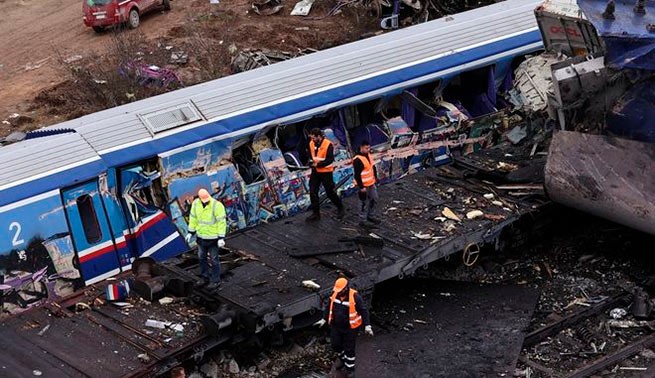
Poor quality of service
The EU Regulation on the Rights and Obligations of Rail Passengers (Law 1371/2007) gives Member States the right to grant companies exemptions from some of its provisions for up to five years. According to RAS, Greece exercised its right for the first time in 2009, then in 2014. The Ministry extended TrainOSE exemptions in 2019. These exemptions apply to trips and travel. These include travel information and booking systems, advance payments, liability for delays, missed connections and cancellations, refunds and re-routing. According to the Ministry, such exceptions were necessary due to the specifics of the rail transport market in Greece and the operating conditions of the rail network.
*This is a false statement, since the interest was at least one more participant in the competition, the Russian Railways. But they were not allowed to compete.
PS Why hasn’t a criminal case been opened as a result of this investigation so far? Oh yes, New Democracy has power in Greece…

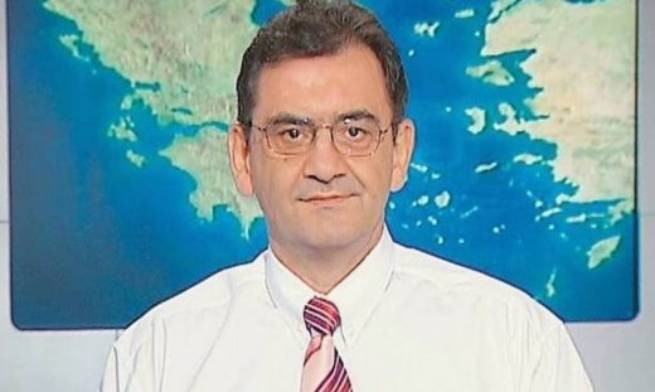
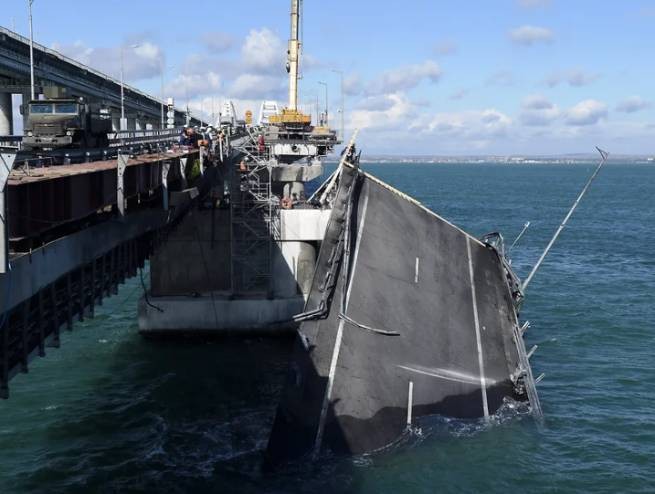

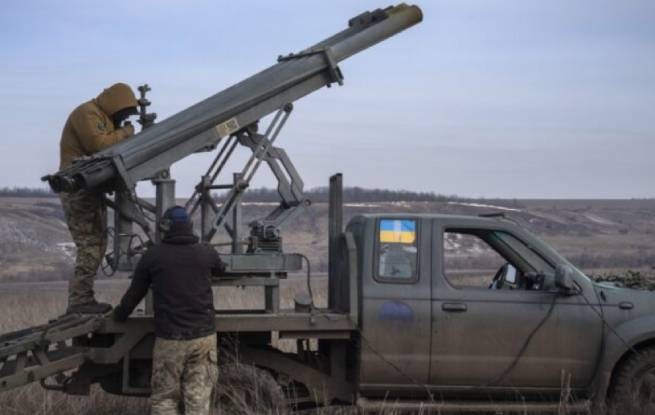
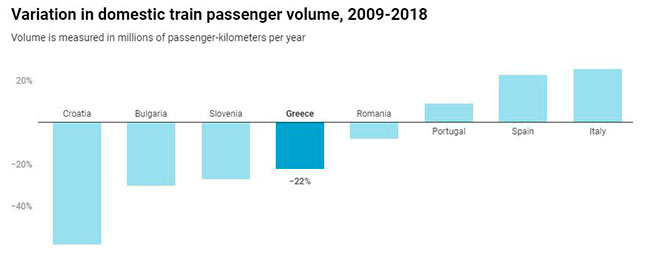

More Stories
What influenced Greece’s decision to help Kyiv with weapons?
The Minister of Health called the protesters "insignificant people, kafirs"
Gold Switzerland: “We are in the last 5 minutes of our financial system – the collapse of everything is approaching”